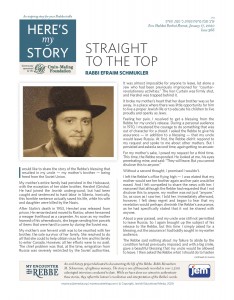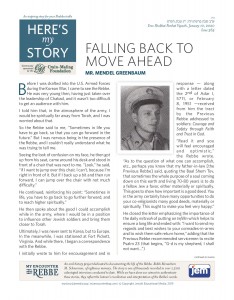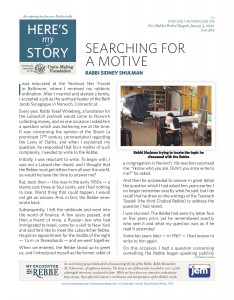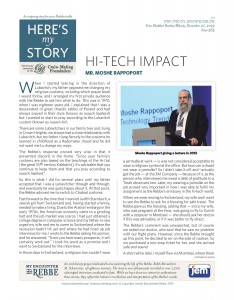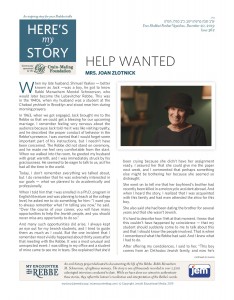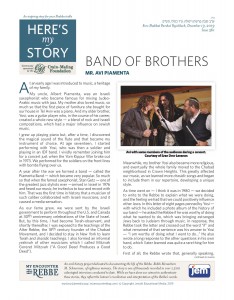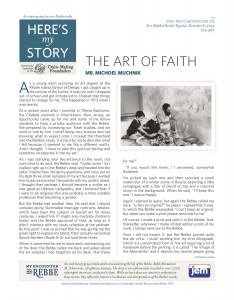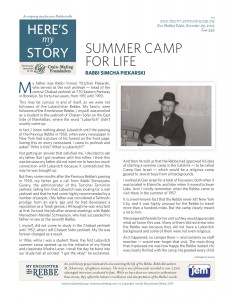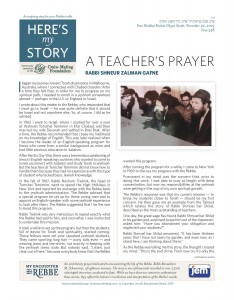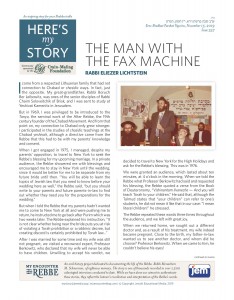Straight to the Top
I would like to share the story of the Rebbe’s blessing that resulted in my uncle – my mother’s brother – being freed from the Soviet Union.
My mother’s entire family had perished in the Holocaust, with the exception of her older brother, Hershel (Grisha). He had joined the Jewish underground, but had been caught and sentenced to hard labor in Siberia. Ironically, this horrible sentence actually saved his life, while his wife and daughter were killed by the Nazis.
After Stalin’s death in 1953, Hershel was released from prison. He remarried and moved to Rostov, where he earned a meager livelihood as a carpenter. As soon as my mother learned of his whereabouts, she began sending him parcels of items that were hard to come by during the Soviet era.
My mother’s one fervent wish was to be reunited with her brother, the sole survivor of her family. She resolved to do all that she could to help obtain visas for him and his family to enter Canada. However, all her efforts were to no avail. The chief problem was that, at the time, emigration from Russia was severely restricted by the Soviet authorities. It was almost impossible for anyone to leave, let alone a Jew who had been previously imprisoned for “counter-revolutionary activities.” The Iron Curtain was firmly shut, and Hershel was trapped behind it.
It broke my mother’s heart that her dear brother was so far away, in a place where there was little opportunity for him to live a proper Jewish life or to educate his children to live proudly and openly as Jews.
Feeling her pain, I resolved to get a blessing from the Rebbe for my uncle’s release. During a personal audience in 1970, I mustered the courage to do something that was out of character for a chasid: I asked the Rebbe to give his assurance – in addition to a blessing – that my uncle would leave Russia. At first, the Rebbe didn’t respond to my request and spoke to me about other matters. But I persisted and asked a second time, again getting no answer.
For my mother’s sake, I posed my request for a third time. This time, the Rebbe responded. He looked at me, his eyes penetrating mine, and said: “They will leave. But you cannot disclose this to anyone.” (more…)


